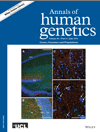 Journals have retracted four papers from an author after uncovering evidence the peer review process had been compromised. Three papers have all common authors.
Journals have retracted four papers from an author after uncovering evidence the peer review process had been compromised. Three papers have all common authors.
In one notice, issued last month, Annals of Human Genetics said it had reason to believe the paper had been reviewed by unqualified reviewers. Last year, another journal, Molecular Biology Reports, pulled two papers by the same group — all based at the China Medical University in Shenyang — all for peer-review issues. Additionally, Molecular Biology Reports also retracted another paper co-authored by Peng Liu last year, which did not include her other colleagues on the three other papers. All papers describe the epigenetic changes — modifications in expressions of genes — that may underlie cancer.
Here’s the retraction notice in the Annals of Human Genetics, published June 27:
The above article, published online on Wiley Online Library (wileyonlinelibrary.com) on 13 March 2014, has been retracted by agreement between the Journal Editor-in-Chief, Mark G. Thomas, University College London, and John Wiley & Sons Ltd. The retraction has been agreed due to evidence indicating that the peer review of this paper was compromised. It is believed that the paper was accepted based on recommendations from reviewers not suitably qualified.
The 2014 paper, “Promoter Methylation of the RASSF1A Gene may Contribute to Colorectal Cancer Susceptibility: A Meta-Analysis of Cohort Studies,” has been cited four times, according to Thomson Reuters Web of Science.
All four authors of this paper — He-Ling Wang, Peng Liu, Ping-Yi Zhou and Yu Zhang — were also co-authors on two other papers that were pulled for compromised peer review in August 2015. Here’s the retraction notice to “Aberrant promoter methylation of RASSF1A gene may be correlated with colorectal carcinogenesis: a meta-analysis,” published in Molecular Biology Reports:
The Publisher and Editor retract this article in accordance with the recommendations of the Committee on Publication Ethics (COPE). After a thorough investigation we have strong reason to believe that the peer review process was compromised.
The 2014 paper has been cited five times.
Next, another 2014 paper, “Role of p16 gene promoter methylation in gastric carcinogenesis: a meta-analysis,” which was also retracted in August 2015 with the same retraction notice. This paper has been cited five times.
We’ve reached out to He-Ling Wang, the corresponding author of all three papers.
Molecular Biology Reports was busy in August 2015 — on the same day it issued the two above notices for papers by Wang et al, it issued two other retractions, also for peer-review issues. One even includes one of the authors from the group above — Peng Liu. The notices for both of the other papers are identical.
Here’s a link to the retraction notice for “GelsemiumElegansBenth alkaloids extract induced cell cycle arrest resulting in anti-proliferation and pro-apoptosis effects on SMMC-7721 cells in vitro and in vivo,” which lists Liu as an author. It has yet to be cited.
And here’s the link to the retraction notice for “Role of RASSF1A promoter methylation in the pathogenesis of hepatocellular carcinoma: a meta-analysis of 21 cohort studies.” Although it includes none of the same authors as any of the retractions above, all are affiliated with China Medical University. Like the the other group’s retracted papers, this too describes the epigenetic changes that may underlie cancer.
We’ve contacted the first author of this paper, Yong-Shuang Li, for a comment.
We’ve also reached out to Mark Thomas, the editor-in-chief of Annals of Human Genetics from University College London, and will update the post with anything else we learn.
In total, we’ve counted well more than 300 papers pulled for faked, rigged or compromised peer review. Here’s our 2014 Nature feature on the topic if you need a bit more background.
Like Retraction Watch? Consider making a tax-deductible contribution to support our growth. You can also follow us on Twitter, like us on Facebook, add us to your RSS reader, sign up on our homepage for an email every time there’s a new post, or subscribe to our new daily digest. Click here to review our Comments Policy. For a sneak peek at what we’re working on, click here.
Time for journals to select reviewers on their own.
“Promoter Methylation of the RASSF1A Gene may Contribute to Colorectal Cancer Susceptibility: A Meta-Analysis of Cohort Studies,”
This cites the non-existent “Begger’s funnel plot” that was recognised as one of the hallmarks of a meta-analysis paper-mill:
http://www.scientificamerican.com/article/for-sale-your-name-here-in-a-prestigious-science-journal/
— pay the fee, sign the manuscript. So it appears that the paper-mill provided peer reviewers as part of the package.
another 2014 paper, “Role of p16 gene promoter methylation in gastric carcinogenesis: a meta-analysis,” which was also retracted in August 2015 with the same retraction notice.
Also mentions Begger’s funnel plot.
“Aberrant promoter methylation of RASSF1A gene may be correlated with colorectal carcinogenesis: a meta-analysis”
The preview available from Springer doesn’t go far enough to see whether the non-existent test appears. However, comparing the title with the first paper, it clearly covers similar ground. And we do learn from the previews that in both cases the authors selected 68 studies “be focused on the relationships between RASSF1A promoter methylation and CRC susceptibility” through electronic database search (and two more papers from manual search), using the same databases and the same search terms. In both cases they were left with 11 papers that met all criteria and were suitable for inclusion.
So what is the difference between the two meta-analyses? Well, in one case those 11 included papers involved 630 patients; in the other case the same papers involved 1505 patients.
These paper-mills certainly provide value for money.
Role of RASSF1A promoter methylation in the pathogenesis of hepatocellular carcinoma: a meta-analysis of 21 cohort studies
Not enough of the text is visible through Springer Snippet preview to tell whether Begger’s Funnel test is mentioned, but otherwise it follows the same paper-mill template.